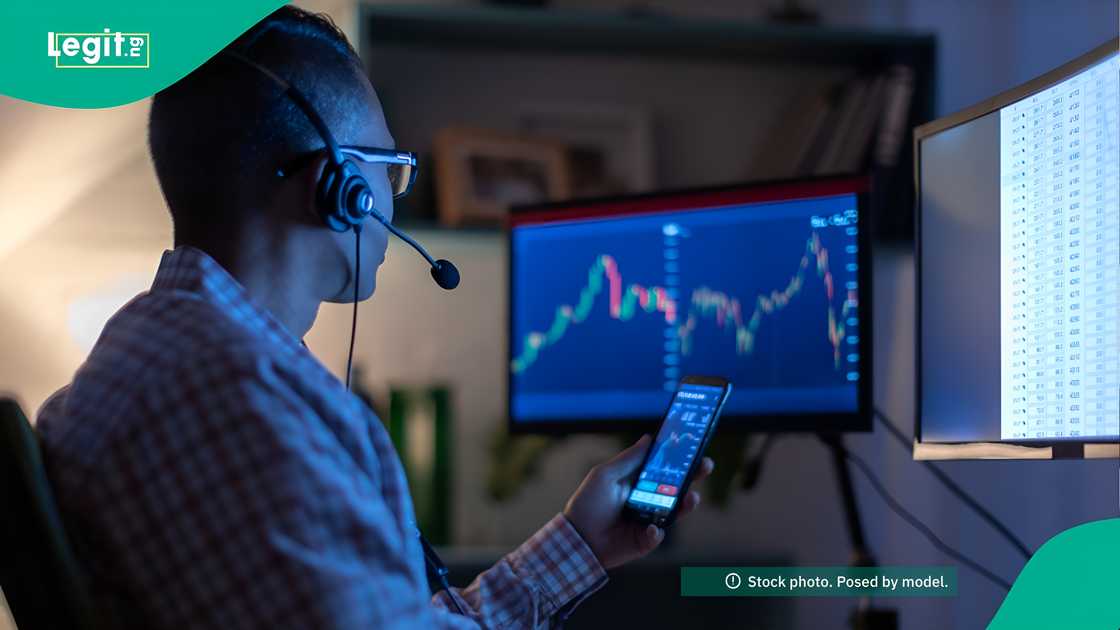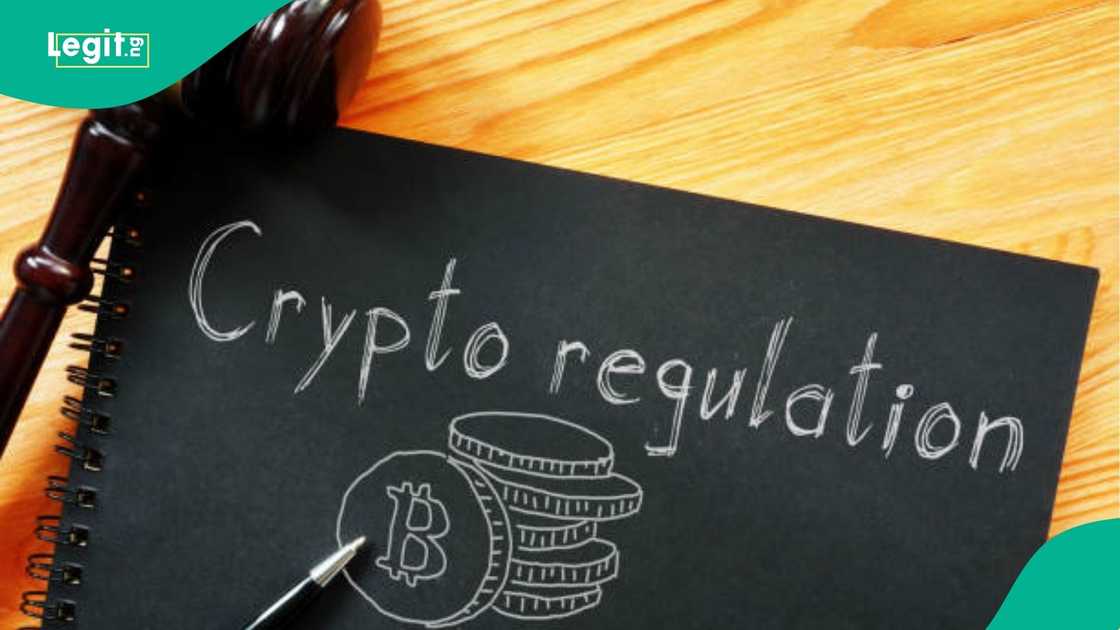What Crypto Fanatics Should Know About the New Investment and Securities Act, By Adeyemi Owoade
Editor’s note: In this piece, intellectual property and technology lawyer Adeyemi Owoade explains Nigeria’s groundbreaking Investments and Securities Act, 2024, and its implications for the country’s crypto future, from legal recognition to SEC oversight, compliance requirements, and implications for digital asset users and platforms.
CHECK OUT: How to Start Earning with Copywriting in Just 7 Days – Even if You’re a Complete Beginner
Big news just dropped in Nigeria’s financial space, and it is sending rocking waves through the crypto world. Say hello to the Investments and Securities Act, 2024 (ISA), the brand-new law that officially brings crypto into Nigeria’s legal spotlight. Signed into law by President Bola Tinubu, this is more than just policy talk. It is a major leap forward for digital finance in the country.

Source: Getty Images
For years, Nigeria’s stance on crypto has been nothing less than complicated. One minute it was being embraced, the next it was being shut down. But now, the ISA has come in to clear the air. And yes, it is indeed a commendable move.
Crypto is now recognised as a security!
Here is the headline: under the new ISA, “virtual assets” (including cryptocurrencies) are now legally recognized as securities. That means the Securities and Exchange Commission (SEC) is officially in charge of regulating crypto in Nigeria.
This is a major shift. Before now, the crypto space was living in legal limbo, popular among Nigerians but operating under regulatory uncertainty. With this recognition, digital assets are now part of Nigeria’s capital market framework. In short, crypto is now legit!
The CBN’s rollercoaster ride
Let’s not forget how we got here. Back in 2017, the Central Bank of Nigeria (CBN) warned banks to steer clear of crypto. Things escalated in 2021 when banks were ordered to shut down accounts linked to crypto transactions. It was a dark time for crypto enthusiasts and traders at large.
But things changed in late 2023. The CBN reversed its ban, allowing banks to work with crypto service providers again. Then, in January 2024, it issued guidelines for how banks could handle crypto-related accounts, focusing on anti-money laundering (AML) and know-your-customer (KYC) rules.

Read also
Energy rights group backs naira-for-crude policy, warns new NNPCL leadership against dubious reforms
The SEC is all-in for crypto regulation
In the meantime, the SEC was making moves. It launched the Accelerated Regulatory Incubation Programme (ARIP) in 2024 and granted “approvals-in-principle” to platforms like Busha and Quidax. The goal? To test the waters and prepare for broader regulation.
Now, with the ISA in place, things are official. Any platform that wants to offer crypto services in Nigeria must be licensed by the SEC. No license, no legal operation, it’s that simple.
The SEC has been empowered with stronger oversight authority. It can now issue rules, investigate violations, and protect investors in the digital asset space. Think of it as Nigeria building the legal infrastructure for a safer, more reliable crypto market.

Source: Getty Images
So, what’s the bottom line?
For everyday crypto users, this new law brings something we have all been craving: clarity. Gone are the days of wondering whether crypto is “legal” or not. Now, it is official, cryptocurrencies are legal in Nigeria, but they fall under the category of securities. And that means they are regulated by the Securities and Exchange Commission (SEC).
But here is the kicker, not all crypto activities are legal, especially if they are being done outside of the new rules.
Can you be arrested for trading crypto?
Well, not exactly for just trading crypto. If you are using a registered, licensed platform that operates under SEC supervision, then you are good. But if you are trading on unlicensed platforms, especially those running anonymously through WhatsApp, Telegram, or other unofficial channels, then you are entering risky territory.
Under the ISA 2024, operating an unlicensed crypto business or promoting one is a violation of securities law. While the SEC is the main regulator, it can work with law enforcement to investigate and prosecute offenders, especially where fraud, money laundering, or investor exploitation is involved. So, while you may not be arrested for simply buying Bitcoin, you can get into trouble if you are part of or promoting unregistered and illegal schemes.

Read also
JP Morgan, top US bank, seeks licence to operate in Nigeria as it predicts naira FX rate in 2025
What will happen to platforms operating without a license?
The SEC has been very clear: every platform offering crypto-related services to Nigerians must be registered and licensed. That includes exchanges, wallet providers, trading apps, and even P2P platforms. The law does not care if it is a global platform or a guy running trades on Telegram; if you are dealing in crypto and targeting Nigerian users, you must comply.
Platforms that fail to register may face serious consequences:
- Cease-and-desist orders
- Heavy fines
- Public warnings or blacklisting
- Legal action, possibly in collaboration with the EFCC or police, especially if financial crimes are suspected
This means platforms running on WhatsApp groups, Telegram channels, or shady DMs are now operating illegally unless they go through the proper SEC process. These platforms are also not accountable, putting users at risk of losing their money with no legal recourse.
So, what should you do as a user?
- Stick to registered platforms with the SEC under its ARIP umbrella
- Avoid “quick profit” trading groups on social media, they are likely unlicensed and unsafe
- Watch out for scams hiding behind crypto buzzwords
- If you are unsure, check the SEC’s website for updates on licensed platforms
In short, crypto is legal, but only when done through the right channels. Nigeria is stepping up to regulate the space, not to kill innovation, but to make it safer, smarter, and sustainable. We look forward to the operationalisation of the law in the crypto world.
Disclaimer: The views and opinions expressed here are those of the author and do not necessarily reflect the official policy or position of Legit.ng.
Adeyemi Owoade is an intellectual property and technology lawyer based in Lagos, Nigeria. He advises multinational clients on a wide range of intellectual property matters, including trademarks, copyrights, patents, and domain names. Adeyemi also provides strategic counsel on emerging technology issues, helping clients navigate the evolving legal landscape of innovation and digital transformation.
PAY ATTENTION: Сheck out news that is picked exactly for YOU ➡️ find the “Recommended for you” block on the home page and enjoy!
Source: Legit.ng





